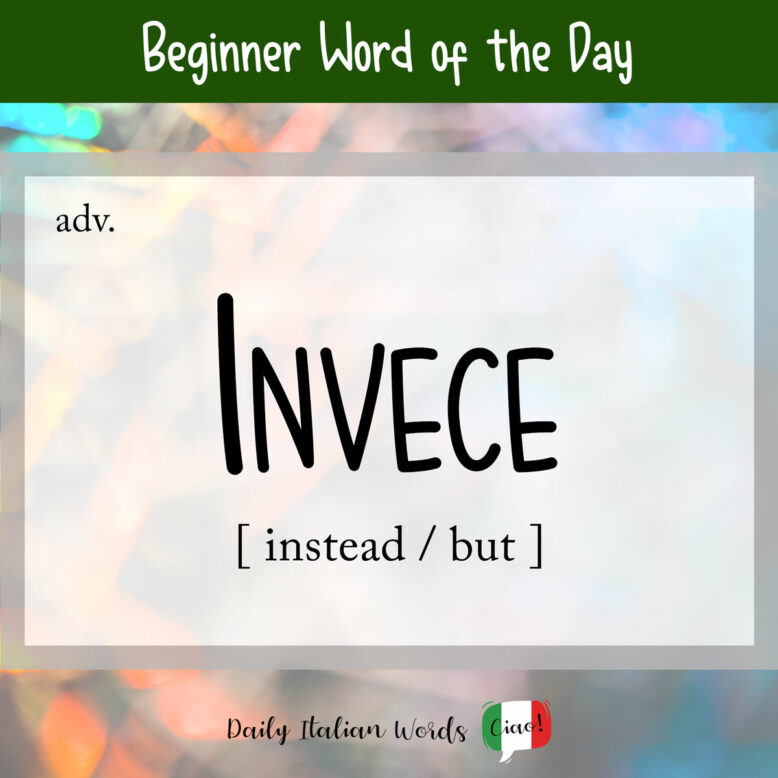The function of a “linking word” in language is to join two ideas or sentences in order to help other people to understand the connections you are making when speaking or writing.
One very useful linking word in Italian is invece which is used to:
- introduce a phrase contrasting with what has already been mentioned (like the English links ‘but‘ ‘instead‘ or ‘whereas‘)
- present an alternative or substitute (like the English links ‘instead of‘ or ‘rather than‘)

When invece presents two contrasting ideas, it tends to appear on its own without any supporting prepositions.
Pensavo fossimo in orario, invece mi sbagliavo!
I thought we were on time but I was wrong!
Dovrei andare io ma non ho voglia. Vai tu invece!
I should be the one to go but I don’t want to. You go instead!
Alcuni amano il caldo, altri invece preferiscono il fresco.
Some people like hot weather, whereas others prefer it cool.

When it presents an alternative or substitute, it is usually followed by the preposition di (of) or a partitive article made up of di + a definite article (del, della, degli, etc.).
Perché non vai a fare una passeggiata invece di rimanere sul divano tutto il giorno?
Why don’t you go for a walk instead of sitting on the couch all day?
Invece di comprarti un regalo preferisco darti dei soldi.
Rather than buy you a present, I’d prefer to give you money.
Al mattino preferisco bere un caffè invece del tè.
In the morning I prefer to drink a coffee instead of tea.

Although invece di is by far the more common expression in modern Italian, it is also possible to say invece che (literally ‘instead that’). (Source: Treccani)
Si è iscritta Maria invece della sorella.
Si è iscritta Maria invece che la sorella.
Maria signed up instead of her sister.
There is one situation where only invece che is acceptable and that is when the subordinate clause begins with a preposition (e.g. in, di, a, etc.)
Preferisco lavorare a casa invece che in ufficio.
I prefer working at home rather than at the office.

According to the Corriere Dictionary, when invece is followed by the preposition di to mean ‘instead of‘, many Italians prefer to separate the word into two components: in vece (e.g. Sono andato io in vece di mio fratello. = I went instead of my brother). Whether you choose to write it as one word or separately is purely a matter of personal preference.
That said, it is always necessary to use the detached form in front of possessive adjectives, where in vece assumes the meaning of in one’s stead. In this case, the possessive adjective can also be inserted between in and vece:
- È venuta mia sorella in vece mia. = My sister came in my stead.
- È venuta mia sorella in mia vece. = My sister came in my stead.
Heather Broster is a graduate with honours in linguistics from the University of Western Ontario. She is an aspiring polyglot, proficient in English and Italian, as well as Japanese, Welsh, and French to varying degrees of fluency. Originally from Toronto, Heather has resided in various countries, notably Italy for a period of six years. Her primary focus lies in the fields of language acquisition, education, and bilingual instruction.


